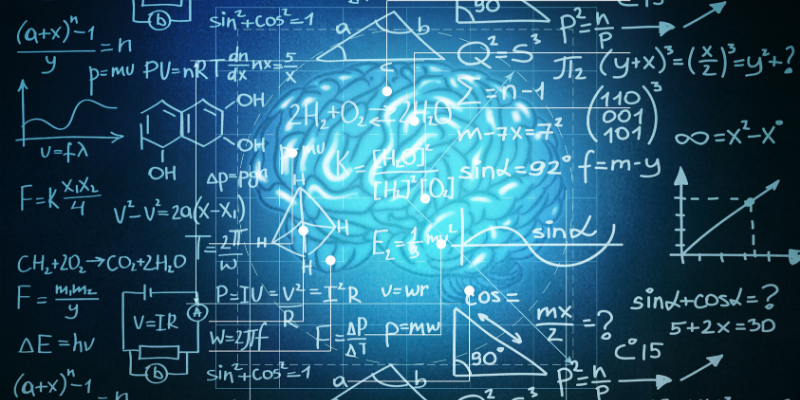
The fusion of artificial intelligence (AI) and Learning Management System (LMS) platforms will revolutionise the way teachers instruct and guide students. This is aligned closely with the objectives of National Education Policy (NEP) 2020 to create more effective and learner-centric educational experiences.
While the policy puts the learner at the center of educational initiatives; school administrations, educators, and edtech companies are also evolving tools and techniques to enhance learning outcomes for the students.
Understanding the tools available in AI for education
AI provides a variety of valuable tools to assist teachers in delivering better education for students. AI incorporate features like personalised learning paths, automated grading, and analysis to track students’ progress. Chatbots, too, are being used to enhance online engagement of students and parents and different analytical assistance helps in identifying students’ personalised traits and thereby help in creating a personalised learning module for them.
Speech recognition and natural language processing are assisting educators in deciphering student’s abilities based on specific feedback. Virtual and augmented reality tools, too, are creating an immersive learning environment for students.
Additionally, innovative content is being created by teachers based on the personal interest, learning styles, and proficiency levels of students. Plagiarism detection tools also helps teachers and parents comprehend the integrity and originality of student’s learning process. More importantly, with its focus on AI-based tools, NEP 2020 is helping to democratise of the use of such technologies.
Hence, easy availability of such tools in schools will see teachers and students naturally gravitating to such technologies because it makes learning fun and interesting for students and the job of teachers less demanding and tedious.
AI integration revolutionises LMS
Serving as the foundation of modern education, LMS platform enables teachers to create, distribute, and organise lessons and materials for students. However, its integration with AI, has further added to its appeal.
Modern LMS enables teachers to offer online quizzes, facilitate class discussions, and store learning resources. However, by integrating it with AI, teachers can monitor students’ performance and adapt lessons to help them progress. Additionally, AI will empower LMS systems to adjust lessons dynamically in real-time to cater to each student’s learning needs.
Moreover, emerging technologies such as virtual and augmented reality will transform the learning experience by analysing data on a student’s performance and identifying shortcomings which require assistance. With AI-powered learning tools, students can receive personalised lessons, perfectly matching their needs. AI can also offer extra assistance or provide instant feedback to ensure that students are back on track. Such interventions will help students succeed in school and boosts their confidence in their abilities.
For educators, AI simplifies the task of supporting diverse learners in the classroom, irrespective of their learning styles or needs, ensuring that everyone receives the help they require to succeed.
The role of educators and parents in AI-led education
While AI can do remarkable things on how we teach and learn, the role of teachers and parents remains crucial. Teachers use AI tools to enhance their teaching practices and guide students through their educational journey, interpreting AI-generated insights to help students improve.
Parents also play a significant role by creating a conducive learning environment at home and collaborating with teachers to support their children’s success. Open communication among teachers, parents, and students are essential to maximise AI’s benefits in education by addressing challenges as they arise.
Upskilling educators: embracing lifelong learning
As AI becomes more ubiquitous in schools, teachers must acquire new skills. In addition to their teaching expertise, they should become proficient in using AI tools. It may involve learning about data, being comfortable with different technologies, designing lessons, and integrating innovative approaches into their methodologies.
Schools and educators are actively seeking partnerships with entities that can provide new tools, techniques, and guidance to enhance teachers’ capabilities. These collaborations facilitate upskilling of educators, ensuring that they are equipped to navigate the future of learning. By fostering such partnerships, schools empower their staff to embrace innovation while retaining a solid foundation in pedagogical principles, thus driving forward the evolution of education in the AI era.
NEP 2020 aims to create a more inclusive, holistic, and accessible learning environment for students from diverse backgrounds and social strata. While AI-embedded LMS presents opportunities for innovation and improvement, it’s important to approach the integration thoughtfully, ensuring that ethical considerations and privacy issues are addressed to safeguard students’ well-being and promote equitable access to quality education for all.
(Amit Kapoor is the Co-founder and CEO of Eupheus Learning)
Edited by Megha Reddy
(Disclaimer: The views and opinions expressed in this article are those of the author and do not necessarily reflect the views of YourStory.)




![Read more about the article [Startup Bharat] Is Pink city Jaipur the new startup hub of India?](https://blog.digitalsevaa.com/wp-content/uploads/2021/03/Jaipurinside1-1597409191980-1614863675913-300x150.jpg)





